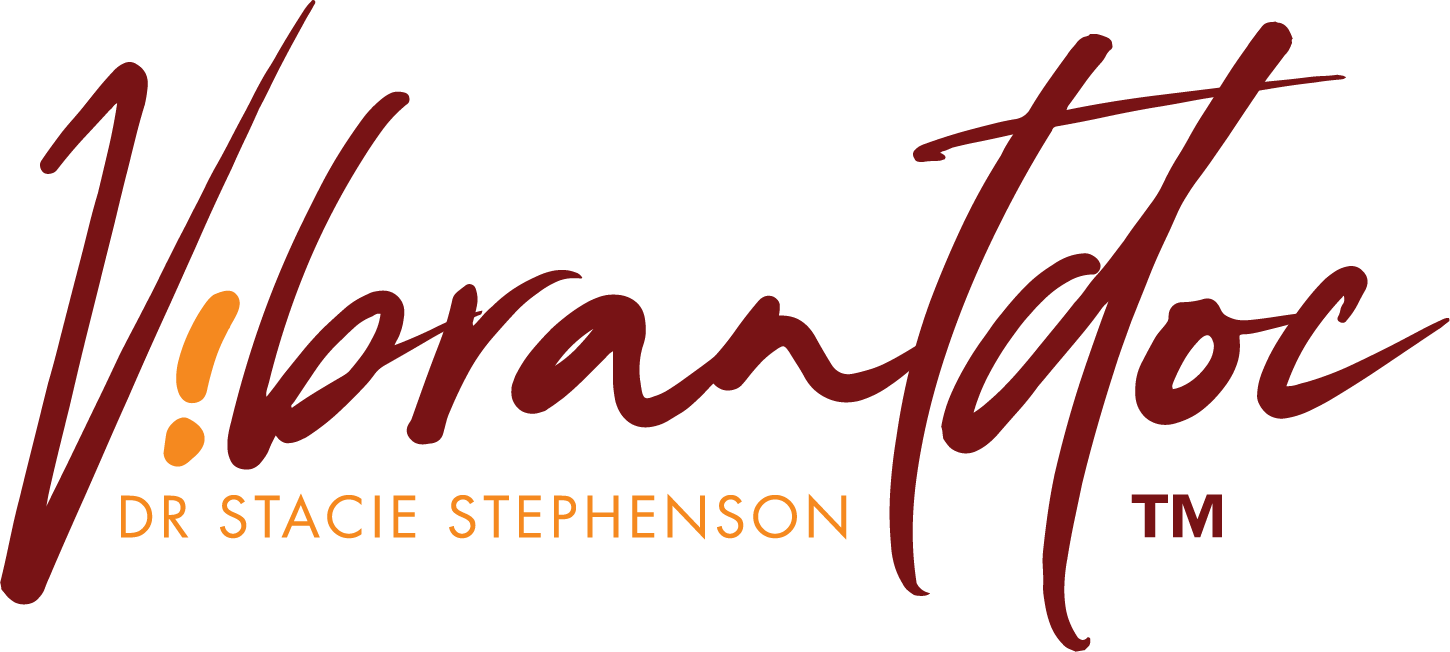If there’s one thing that never goes out of style, it’s a fad diet. “I’ll sell you X, Y, or Z for easy weight loss” is a trick as old as the hills. Sometimes it’s a book touting some special tricks you’ve never heard of before, an article or a membership site with some new scientific discovery, or some pill or powder or shake or bar or whatever somebody thinks could be profitable.
Here is the truth that everyone should know: Yes, science does evolve in its understanding of complex subjects like nutrition. BUT. When it comes to weight loss, there truly is nothing new under the sun. What’s “new” (in the scheme of human history) is not how to lose weight, but how to gain it. Junk, processed, and fast food, all engineered by new science to be high in calories and low on nutrition, is what is “new.” A complicated, chronically stressful environment with no respite from the constant pressure to succeed and win is what is “new.” Constant 24/7 access to unlimited amounts of cheap food is what is “new.”
Health, on the other hand, is as natural, as ancient as it gets. Even needing to lose weight is relatively new. Although there have always been a few outliers in history who were overweight—usually those who had unusual access to all the food they wanted and were so pampered that they didn’t have to expend much energy—most people were not overweight because the type and amount of food available to them, and the necessity for physical activity, simply didn’t allow for it.
Yet, the sales tricks are getting trickier and more sophisticated, trying to get you to buy into new weight loss schemes, drugs, and products. Don’t be fooled. There are many interesting science-based ways to enhance heath, but when they are sold strictly for weight loss, you probably aren’t being given all the information. There is never just one pill, shot, tea, or herb that will completely solve any problem, and that includes weight problems. They are gimmicks. Losing weight once you have become overweight requires going in a direction counter to the culture, shifting your lifestyle, shifting your psychology, and working on changing your habits. It can be difficult, like any major change, but really there are just two things about weight loss that you need to know:
- You need to take in less energy than you burn, without stressing yourself by drastically undereating (stress can cause weight loss resistance).
- You need to eat real whole food your body recognizes, so you get the nutrients you need to support healthy metabolism.
Simple, right? Well…simple isn’t the same as easy, and when you are in the habit of overeating and eating processed food, it can be difficult to change, especially at first. You are breaking old habits and forming new ones. But there is nothing complicated about it. If you can put food in its place and use it to work for you and not against you, you will be successful. It may take a while, but with consistency (the key to most good things), you can succeed.
The long game is choosing what goes in your mouth every day for the rest of your life, one day at a time. But the choice really is always yours. Remember that everything else is a get-skinny-quick short-sighted fad. Aiming high and going for your dream weight can seem impossible, but I can assure you that it is entirely possible, and within your control. Just imagine the relief knowing you never have to try another fad diet again! Just do those two things I listed above. Play the long game, make smart choices in your own best interest, and remember that momentary pleasure does not result in long-term happiness. That is how you get lasting results.
But what about that tricky psychological aspect? How do you actually succeed at portion control and choosing whole food over junk food? The first thing to do is get real.
Many (most?) people turn to food for emotional comfort and aren’t realistic about how much they are actually eating because they don’t want to be (or just can’t see it for themselves in the moment). Any scientist knows the main problem with a lot of weight-loss research is that people seem unable to accurately self-report what they eat. Not only do people tend to exaggerate the healthful foods they eat and under-report the excesses, but much of the time, they really believe their reports are accurate. Specifically, when asked to keep track of their food, people underreport their food consumption. Even dietitians, although more accurate than non-dietitians, underreport what they eat. This is a problem because how do you make rational decisions about food if you can’t even see the truth about what you are eating now?
For some people, it helps to write down what they eat, so they can see it right there in front of then. However, for most people, food journals aren’t sustainable. One study looked at all the reasons why people don’t seem to be able to keep up a food journal, and many of the reported reasons had to do with how boring or tedious it was. There are a few people who manage to do this over the long-term—I find they are people who like statistics and generally keep track of many aspects of their lives but most of us just don’t have the time, energy, or inclination to sit down and log every single thing we eat. There are much more interesting things to do with your time. Wouldn’t it be nice if you could hone your awareness of your dietary habits without having to write it all down or scroll through long food lists in an app to record everything?
There is, and it’s called mindfulness.
If there ever was a secret trick to weight loss, mindfulness is it. People often eat without thinking. They don’t pay attention to what they are doing. Mindful eating is a technique in which you focus wholly and completely on everything you are putting into your mouth.
This might seem obvious but it’s harder than you think. Instead of eating while scrolling through Instagram or watching TV or reading a book, you give all your attention to the food. Yes, just the food. Nothing else. You look at it. You appreciate its presentation. You eat it slowly and you pay attention to the taste, the texture, the sensation. You stay tuned in as you chew and swallow. You allow eating to be the fully sensual experience it is.
This is the key to portion control. Does it sound boring? At first, when you are used to your attention going in a million directions at once, mindful eating can be a challenge. If your habit is food + TV or food + phone or food + anything else, it’s hard to “just eat,” but eating is one of life’s great joys and when you don’t focus on it, you are missing the beauty and subtlety of a primal and important human experience.
More to the point of weight loss, it’s very difficult to eat an entire sleeve of mediocre cookies or a whole bag of potato chips when you are eating mindfully because you’ll know, right there in the moment, that you are doing something that doesn’t feel right or good. Nobody needs a whole sleeve of cookies or a whole bag of potato chips. When you are mindful, you’ll actually be able to hear that little voice in your head saying, “I don’t think you really want to eat that,” or at least, “You and I both know that is not in your best interest.” Even if you notice, mindfully, that you get a “high” from junk food, you can also notice, mindfully, that whole food tastes better and better the more you eat it…and junk food start tasting worse, overly sweet, overly salty, or like chemicals.
Eating mindfully may be challenging at first, but it quickly becomes enjoyable, especially if you make the most of your eating experience. Make a beautiful plate. Sit down in a calm and pleasant location. It doesn’t take any extra time, like writing in a food journal, and it has immediate benefits, like a calm satisfaction that you have eaten enough when you really have eaten enough (and not too much).
How do you begin? You can practice with a bite of something pleasurable, like dark chocolate or a strawberry. A common mindful eating exercise uses a single raisin. Look at it. Appreciate it. Taste it. Chew it. Eat it slowly. Notice it all. Bliss!
Mindfulness is also about noticing how you feel as you eat. I’m always telling you to listen to your body, and this is one great way to get feedback from your body about what foods are good for you and what foods are not. Many people who aren’t paying attention eat past fullness, or eat until they get indigestion or feel sick, but eating mindfully and slowly while chewing your food longer and more fully will help you recognize when you are full, and that can (and almost always does) result in eating less.
Let your brain catch up with your body. It can take about twenty minutes to register fullness, so if you can take at least thirty minutes to slowly eat your meal, you’ll be more likely to catch those cues. Let 30 minutes be your goal for every meal, 15 minutes for every snack. Eating slowly and chewing longer also helps with digestion and nutrient absorption. I’ve had several patients tell me that eating more slowly and chewing more thoroughly almost completely eliminated their symptoms of irritable bowel syndrome, or resolved their acid reflux.
Research is beginning to demonstrate that mindful eating really does result in significant weight loss and the improvement of other health behaviors. Why not try it? All you have to do is turn off the television, put your phone away, close your laptop, slow down, take a breath, and focus on your food. You are likely to make better food decisions, eat less, and enjoy your meals more, because every bite becomes an experience.
So that’s it. Eat whole food. Don’t overeat. And be mindful. It’s not new. It’s not a fad, but you don’t need a fad to be successful. In fact, fads are not likely to help you at all, at least over the long term. Health is largely about foundations, and eating in this simple way is about as foundational as it gets. It’s the best way to get you back to your happy weight.
Isn’t that a relief?
SOURCES:
Marion Nestle, “Why Calories Count: The Problem With Dietary-Intake Studies,” Health, The Atlantic, March 28, 2012, https://www.theatlantic.com/health/archive/2012/03/why-calories-count-the-problem-with-dietary-intake-studies/254886/.
Rivka Yanetz, Victor Kipnis, Raymond J. Carroll, et al., “Using Biomarker Data to Adjust Estimates of the Distribution of Usual Intakes for Misreporting: Application to Energy Intake in the US Population,” Journal of the American Dietetic Association 108(3) (2008): 455-464, https://pubmed.ncbi.nlm.nih.gov/18313427/.
James Krieger, “Do Dietitians Accurately Report Their Food Intake?” Weightology, 2010-2020, https://weightology.net/do-dietitians-accurately-report-their-food-intake/.
Felicia Cordeiro, Daniel A. Epstein, Edison Thomaz, et al., “Barriers and Negative Nudges: Exploring Challenges in Food Journaling,” Proceedings of the SIGCHI conference on human factors in computing systems 2015 (2015): 1159-1162, https://www.ncbi.nlm.nih.gov/pmc/articles/PMC4755274/.
Sophie Miquel-Kergoat, Veronique Azais-Braesco, Britt Burton-Freeman, et al., “Effects of chewing on appetite, food intake and gut hormones: A systematic review and meta-analysis,” Physiology & Behavior 151 (2015): 88-96, https://www.sciencedirect.com/science/article/pii/S0031938415300317.
Joseph B. Nelson, “Mindful Eating: The Art of Presence While You Eat,” Diabetes spectrum : a publication of the American Diabetes Association 30(3) (2017): 171-174, https://www.ncbi.nlm.nih.gov/pmc/articles/PMC5556586/; Kayloni L. Olson, Charles F. Emery, “Mindfulness and Weight Loss: A Systematic Review,” Psychosomatic Medicine 77(1) (2015): 59-67, https://pubmed.ncbi.nlm.nih.gov/25490697/.


